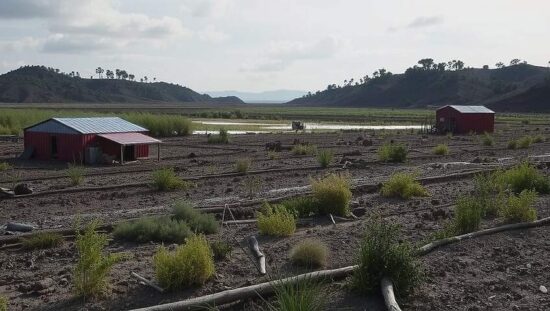A new report from the Global Carbon Project (GCP), involving researchers from Ludwig-Maximilians-Universität München (LMU) and the Alfred-Wegener Institute (AWI), paints a stark picture of the diminishing window for limiting global warming. The remaining carbon budget compatible with a 50% probability of keeping global average temperatures below 1.5°C is effectively depleted, highlighting the inadequacy of current climate action. Even more concerning, projections indicate fossil CO2 emissions will reach a record 38.1 billion tonnes in 2025 – exceeding 2024 levels by 1.1% and jeopardizing even the 1.7°C or 2°C targets.
While the rate of emissions growth has slowed compared to the previous decade (averaging 0.3% annually between 3015-2024, down from 1.9% previously), the current trajectory remains far from achieving the necessary net-zero emissions pathway. The report acknowledges positive developments, particularly the slowing of emissions growth in China and India due to increased renewable energy deployment. It’s also noted that 35 countries, including the US and EU members, have managed to reduce fossil CO2 emissions alongside economic growth – double the number observed a decade ago.
However, this progress is overshadowed by looming increases across key sectors. Overall emissions from fossil fuels-coal, oil and gas-are projected to rise globally in 2025, with increases ranging from 0.8% for coal, 1% for oil and a significant 1.3% for gas. Notably, while coal combustion emissions decline in Europe, oil and gas emissions are increasing. The international aviation sector is also expected to see a 6.8% rise in emissions, while shipping remains relatively stable.
The report offers a sliver of hope with declining emissions from land-use, attributed to successful environmental policies and a significant reduction in deforestation rates within the Amazon region. The ocean, acting as the largest natural carbon sink by absorbing 29% of human-caused CO2 emissions, is showing signs of stagnation, largely due to climate variability and impacted further by the extreme marine heatwaves of 2023-2024. The terrestrial carbon sink also experienced a sharp decline in 2024 due to El Niño, requiring a recovery to pre-phenomenon levels for 2025.
The findings underscore a critical vulnerability: ecosystems are demonstrably susceptible to the impacts of unchecked global warming, as tragically exemplified by the devastating wildfires of 2024. The GCP report serves as a stark warning that aggressive, transformative policies are urgently needed to curtail emissions across all sectors and secure a pathway aligned with a liveable future, demanding a fundamental re-evaluation of global energy systems and priorities.





